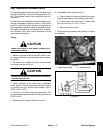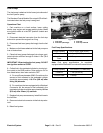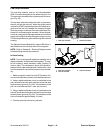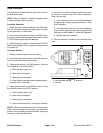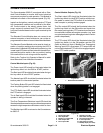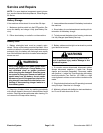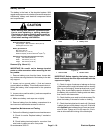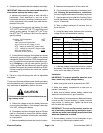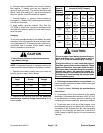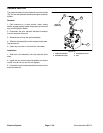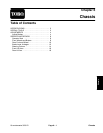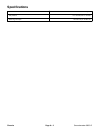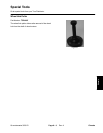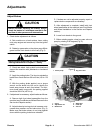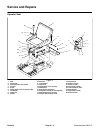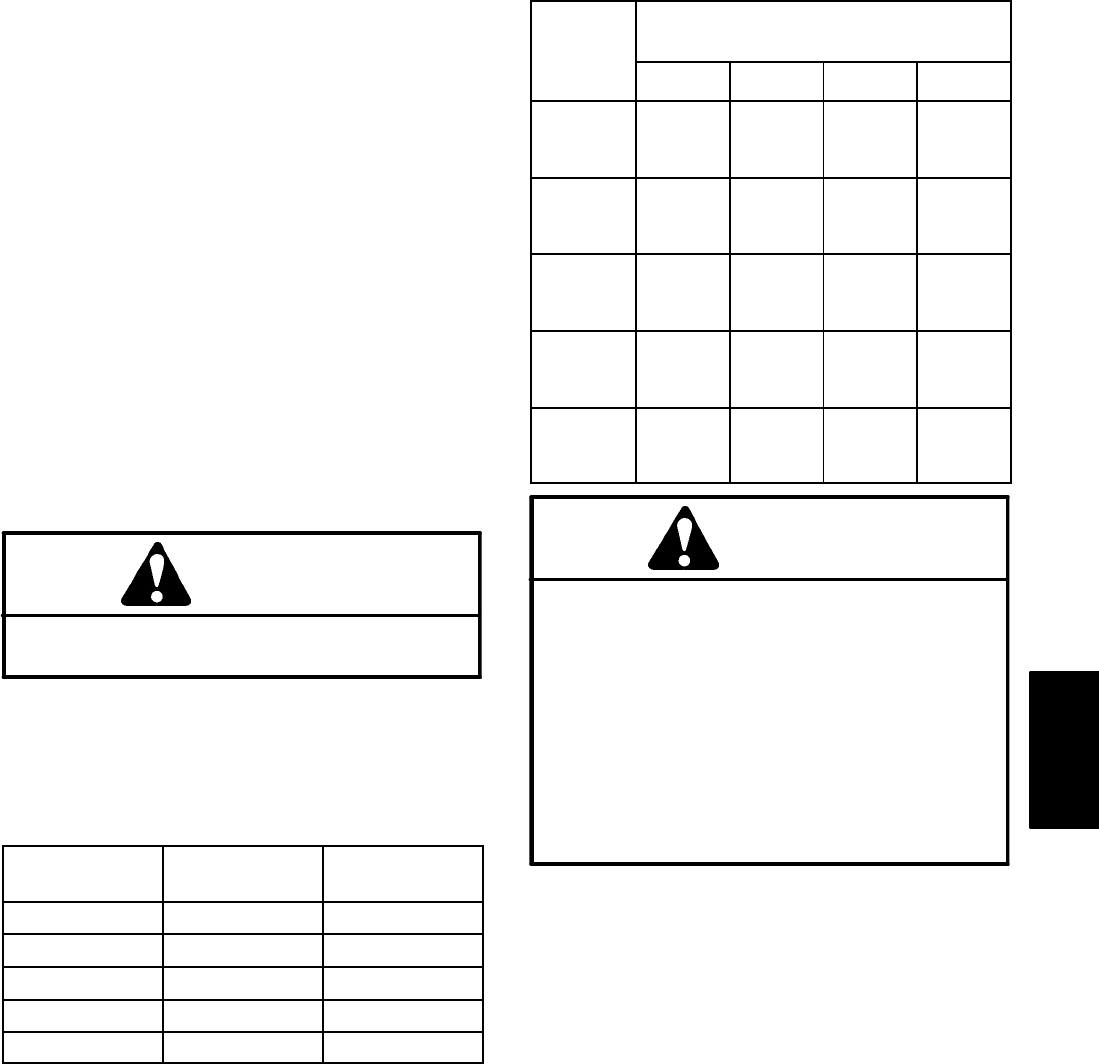
Groundsmaster 3505--D Page 5 -- 25 Electrical System
6. Connect a digital multimeter (set to amps) between
the negative (--) battery post and the negative (--)
(ground) cable connector. The reading should be less
than 0.1 amp. Ifthe reading is 0.1amp or more, the unit’s
electrical system should be tested and repaired.
7. Connect negative (--) (ground) cable connector to
the negative(--) batterypost. Tighten capscrew and lock
nut with two wrenches.
8. Apply battery terminal protector (Toro Part No.
107--0392) or a light coat of grease on all battery posts
and cable connectors to reduce corrosion after connec-
tions are made.
Charging
To minimize possible damage to the battery and allow
the battery to be fully charged, the slow charging meth-
od is presented here. This charging method can be ac-
complished with a constant current battery charger
which is available in most shops.
CAUTION
Follow the manufacturer’s instructions when us-
ing a battery charger.
NOTE: Using specific gravity of the battery cells is the
most accurate method of determining battery condition.
1. Determine the battery charge level from either its
specific gravity or open circuit voltage.
Battery Charge
Level
Specific
Gravity
Open Circuit
Voltage
100% 1.265 12.68
75% 1.225 12.45
50% 1.190 12.24
25% 1.155 12.06
0% 1.120 11.89
2. Determine the charging time and rate using the
manufacturer’s battery charger instructions or the
following table:
Battery
Reserve
C
a
p
a
c
i
t
y
Battery Charge Level
(Percent of Fully Charged)
C
a
p
a
c
i
t
y
(Minutes)
75% 50% 25% 0%
80 or less 3.8 hrs
@
3amps
7.5 hrs
@
3amps
11.3 hrs
@
3amps
15 hrs
@
3amps
81 to 125 5.3 hrs
@
4amps
10.5 hrs
@
4amps
15.8 hrs
@
4amps
21 hrs
@
4amps
126 to
170
5.5 hrs
@
5amps
11 hrs
@
5amps
16.5 hrs
@
5amps
22 hrs
@
5amps
171 to
250
5.8 hrs
@
6amps
11.5 hrs
@
6amps
17.3 hrs
@
6amps
23 hrs
@
6amps
above
250
6hrs
@
10 amps
12 hrs
@
10 amps
18 hrs
@
10 amps
24 hrs
@
10 amps
CAUTION
Do not charge a frozen battery because it can ex-
plode and cause injury. Let the battery warm to
60
o
F (15.5
o
C) before connecting to a charger.
Charge the battery in a well--ventilated place to
dissipate gases produced from charging. These
gases are explosive; keep open flame and elec-
trical spark away from the battery. Do not smoke.
Nausea may result if the gases are inhaled. Un -
plug the charger from the electrical outlet before
connecting or disconnecting the charger leads
from the battery posts.
3. Following the manufacturer’s instructions, con-
nect the charger cables to the battery. Make sure a good
connection is made.
4. Charge the battery following the manufacturer’s
instructions.
5. Occasionally check the temperature of the battery
electrolyte. If the temperature exceeds 125
o
F (51.6
o
C)
or the electrolyte is violently gassing or spewing, the
charging rate must be lowered or temporarily stopped.
6. Three hours prior to the end of the charging, mea-
sure the specific gravity of a battery cell once per hour.
The battery is fully charged when the cells are gassing
freely at a low charging rate and there is less than a
0.003 change in specific gravity for three consecutive
readings.
Electrical
System



